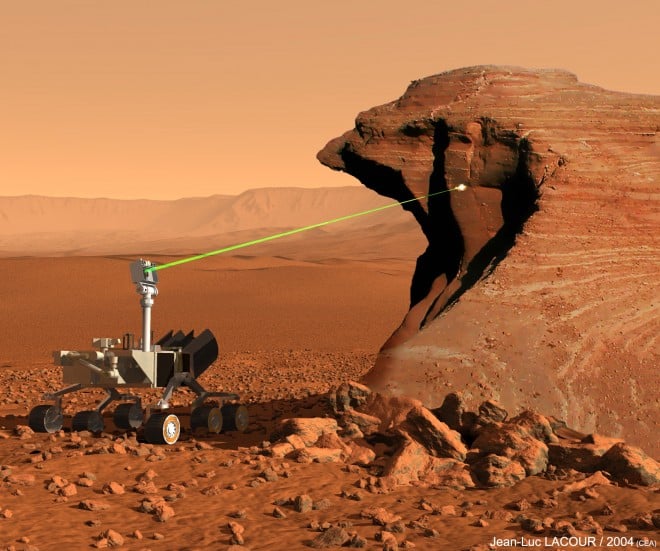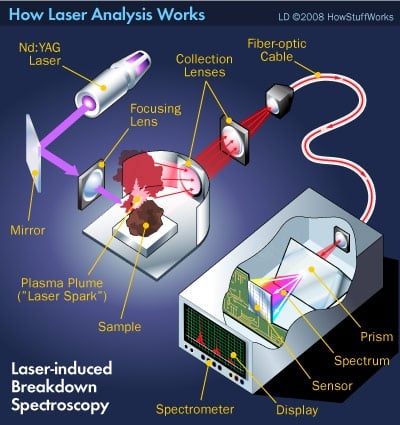One of the big problems with remote exploration using automated systems is figuring out what is important and using that information to make decisions that will allow you to alter your collection plans to gain more information during the study.
When sending an automated exploration vehicle to Mars, those problems are amplified enormously – space and power become a huge issue. Look at this example from a new article at PhotonicsOnline:
After NASA’s Mars Exploration Rover Spirit examined an outcrop called “Comanche” in 2005, it took years of analyzing indirect evidence before the team could confidently infer the presence of carbon in the rock. A single observation with ChemCam could detect carbon directly.
Imagine that – there was no way to measure something as simple as carbon so it had to be inferred indirectly! In a lab setting that would be trivial … but not on a remote planet. So what is this ChemCam mentioned above? It is a size and power optimized LIBS, or laser-induced breakdown spectroscopy system. Here is an example of such a system:
Laser light from the 1067nm IR laser pulses hit the sample, and the optical system integrated with the Mars Rover telescope collects the events and the signals are spread across three spectrometer systems and the results reduced for transmission back to scientists.
Here is a specific block diagram of how the ChemCham is planned for implementation.

For more info you can grab the system overview sheet here.
Of course, the logistics of the system are going to be a tremendous challenge. Great emphasis has been placed on power conservation, meaning that the systems will shut down when not in use. Target selection will require a warm-up period … and every power cycle is an opportunity for failure! It will be amazing to see how this all works!
The ChemCam is planned to travel with the Mars Rover in 2012.
Source: PhotonicsOnline

